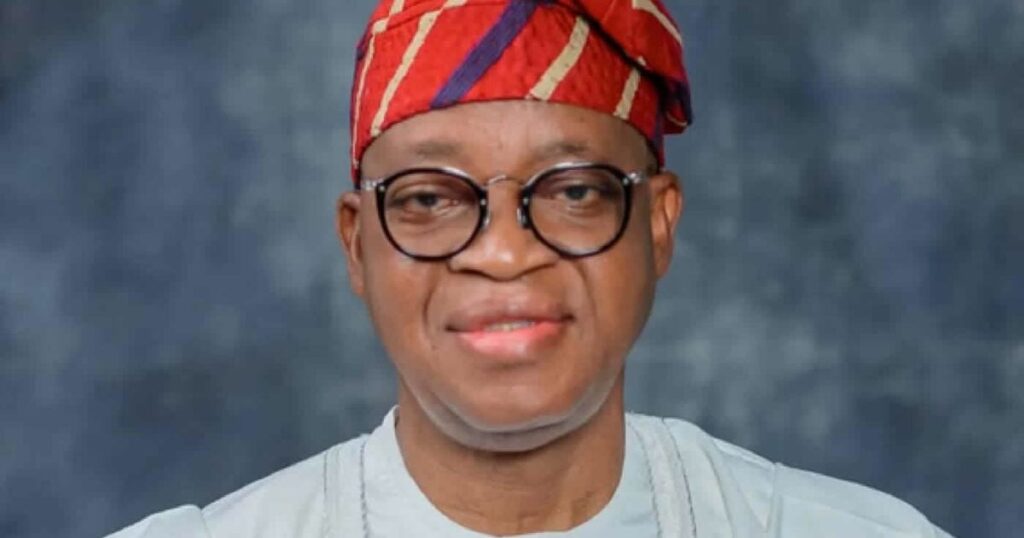The Minister of Marine and Blue Economy, Adegboyega Oyetola, has described the Lagos–Calabar Coastal Highway as a transformative national project that will serve as an “economic artery connecting opportunity, innovation, and prosperity” across Nigeria’s coastline.
Oyetola made the remarks at the South-West Citizen-Government Engagement Summit held in Akure, Ondo State, last week, according to a statement on Monday. The minister used the platform to urge leaders across the South-West to seize the vast economic prospects opened by the multi-billion-naira coastal highway by developing complementary tourism and infrastructure projects.
In the statement on Monday by his media aide, Dr Bolaji Akinola, Oyetola emphasised that the Lagos–Calabar Coastal Highway is more than a transport corridor — it represents a catalyst for trade, investment, and sustainable regional development.
“The Lagos–Calabar Coastal Highway is an economic artery that connects opportunity, innovation, and prosperity,” Oyetola said. “I therefore charge leaders across the South-West to complement this visionary project by developing tourism infrastructure, coastal resorts, and cultural heritage attractions that will enable our communities to fully harness the economic benefits of this new coastal artery.”
According to him, the 700km expressway — which begins from Victoria Island in Lagos and stretches through Ogun, Ondo, Delta, and Akwa Ibom before terminating in Calabar — will create a seamless connection between coastal communities and inland markets. The first phase of the project, covering 47.47km in Lagos, officially began in 2024.
Oyetola noted that the project will boost coastal tourism, hospitality, and small and medium-scale enterprises, while opening new economic corridors that can drive inclusive growth. He added that the South-West region, in particular, stands to benefit immensely from the initiative through job creation, increased investment inflows, and the promotion of its rich cultural and natural assets.
The former Osun State governor also commended President Bola Tinubu for what he described as visionary leadership, especially in expanding Nigeria’s continental shelf by 16,300 square kilometres, thereby extending the country’s maritime boundary by approximately 20 nautical miles in some areas.
He said the development marked a major stride in strengthening Nigeria’s sovereign rights over vast new areas of the seabed, unlocking immense economic, scientific, and environmental opportunities.
“This maritime expansion provides the Southwest with new frontiers for offshore investment, deep-sea exploration, marine research, and renewable ocean energy,” Oyetola said. “It will attract private sector participation in marine logistics, shipbuilding, and blue biotechnology, contributing to the long-term prosperity of our region.”
The minister called for stronger collaboration between the Federal Government and Southwest states to accelerate progress in port modernisation, maritime safety, fisheries, and non-oil export development — critical areas of Nigeria’s blue economy strategy.
He also raised concern over the rising number of waterway accidents, urging coastal state governments to phase out wooden boats and enforce the mandatory use of life jackets for all passengers and operators.
According to Oyetola, replacing wooden boats with fibre-reinforced vessels would significantly improve safety, promote environmental sustainability, and empower local artisans through indigenous boat-building programmes.
He expressed optimism that with coordinated leadership and innovation, the Southwest could become a continental model for maritime efficiency and sustainability.
“This is our moment to build a vibrant blue economy that creates jobs, attracts investment, and celebrates the cultural and natural heritage of our coastal communities,” the minister declared. “If we harness it wisely, the sea will not divide us — it will unite and prosper us.”
The Lagos–Calabar Coastal Highway, once completed, is expected to revolutionise movement along Nigeria’s southern corridor, connecting major commercial hubs and unlocking the economic potential of the nation’s blue economy.















